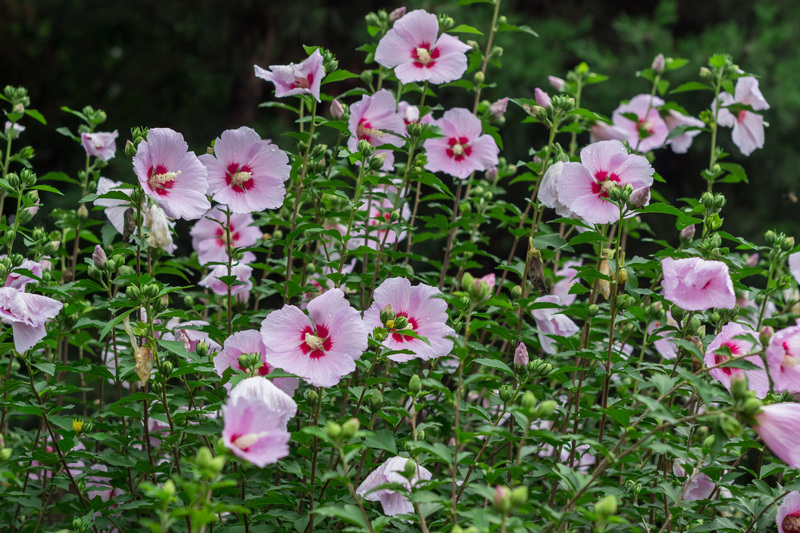Celebrate Tranquility with Inspiring Zen Garden Concepts for Serenity
Posted on 22/08/2025
Celebrate Tranquility with Inspiring Zen Garden Concepts for Serenity
In our fast-paced, digitally connected world, the search for inner peace and calm has never been more vital. One meaningful way to create a sanctuary at home is by embracing the serene philosophy of Zen through a thoughtfully designed garden. Discover how you can celebrate tranquility with inspiring Zen garden concepts for serenity and transform your outdoor--or even indoor--space into a haven of relaxation and mindfulness.

Understanding the Essence of Zen Gardens
A Zen garden, or karesansui (dry landscape garden), is a masterpiece of Japanese design rooted in ancient Buddhist philosophy. The intention behind these gardens is to encourage reflection, meditation, and a deep connection with nature, fostering a sense of harmony within and around us. Often characterized by simplicity, minimalism, and artistic balance, Zen gardens utilize elements such as rocks, gravel, sand, and understated plants to symbolize natural scenes and evoke a profound sense of serenity.
- Minimalism and Simplicity: Zen garden concepts often incorporate fewer elements, focusing on balance and purposeful placement.
- Symbolic Features: Rocks represent mountains or islands, while raked gravel or sand symbolizes water flows or ripples.
- Connection to Nature: The layout encourages a contemplative mindset, drawing inspiration from the natural world.
- Meditative Space: Designed for quiet reflection, these gardens provide a peaceful escape from daily stressors.
Essential Elements of Zen Garden Serenity Concepts
Creating an inspiring serene Zen garden begins with understanding the core elements that define this unique style. These are not just physical features; they are imbued with symbolic meaning to foster mindfulness and tranquility. Let's explore these essential attributes in depth:
1. Rocks and Stones: The Backbone of Your Tranquil Garden
Rocks are foundational to Zen gardens, serving as symbols of permanence, strength, and stability. Their placement is rarely arbitrary; instead, each stone is positioned with intention, often representing mountains, islands, or even living beings within the miniature landscape. Use:
- Large rocks as focal points or mountains
- Smaller stones clustered or scattered to mimic natural formations
Tip: When planning your inspiring Zen garden concept for serenity, consider using naturally weathered stones with unique shapes to evoke a timeless, organic feel.
2. Gravel or Sand: The Symbol of Water and Flow
Raked sand or gravel forms the flowing streams, rivers, or oceans of a Zen landscape, representing water's calming influence. The act of raking itself is a meditative practice, ideal for enhancing everyday mindfulness.
- Patterns can be circular around rocks to represent ripples or linear to evoke flowing water.
- Choose a soft, neutral gravel or white sand for a clean, peaceful look.
3. Plants: Understated Greenery for Peace
Unlike lush gardens, Zen gardens use minimalist plantings to evoke subtle beauty. Popular choices include:
- Moss for ground cover and a soft, ancient allure
- Bamboo for privacy screens and gentle movement
- Low-growing evergreens, such as Japanese black pine or dwarf juniper
- Delicate ferns, grasses, and flowering shrubs for seasonal interest
Remember: The focus should be on shapes, forms, and textures rather than colorful blooms.
4. Water Features: Soothing Sounds of Serenity
While classic karesansui gardens omit water, modern Zen garden concepts for tranquility often incorporate gentle water features to enhance meditative ambiance.
- Simple stone basins (tsukubai) for ritual purification
- Trickling bamboo fountains for a calming background sound
5. Pathways and Bridges: The Journey to Peace
Curved stone paths or rustic wooden bridges can invite mindful walking and encourage meditation in motion. Each step taken on a Zen pathway becomes an opportunity for introspection.
Designing Your Tranquil Zen Garden: Inspiring Ideas for Serenity
Ready to transform your outdoor (or indoor) space into an oasis of calm? Here are several inspiring Zen garden concepts to kindle your journey toward serenity:
Minimalist Courtyard Zen Retreat
Create a concise, low-maintenance haven in a courtyard or small backyard. Start with a base of smooth pebbles or gravel, add a few mossy rocks, and introduce a compact stone lantern. Border the space with bamboo for privacy and use a simple bench made from weathered wood for a peaceful resting spot.
- Space-saving tip: Elevate stone elements or create a single raked gravel 'wave' for maximum impact in smaller gardens.
Modern Zen Patio for Urban Serenity
City dwellers can celebrate tranquility with inspiring Zen garden designs on balconies or rooftop terraces. Choose large pots with minimalist plant selections like bonsai, dwarf pine, or ornamental grass. Use clean-lined stone slabs as stepping stones, and incorporate a tabletop fountain for soothing water sounds.
- Stylish idea: Opt for black or gray stones, sleek planters, and minimalist lighting to blend traditional calm with modern chic.
Indoor Zen Garden Concepts for Serenity
Bring the calming spirit of Zen inside your home with miniature table-top Zen gardens. These can be as small as a shallow tray filled with fine sand, a few polished stones, and a tiny rake.
- Decorate your home office or meditation space with these easily maintained, creative arrangements.
- Include a few air-purifying plants for added freshness and vitality.
Classic Japanese Zen Sanctuary
If space and budget allow, go traditional with a sprawling raked gravel field, natural rock clusters, aged stone lanterns, and a picturesque maple tree for autumn color. Surround the area with a bamboo or wooden fence and create a stepping-stone path leading to a meditation platform or pavilion.
Tips for Curating Lasting Zen Garden Tranquility
Designing and maintaining a Zen garden isn't just a landscaping project--it's a lifestyle commitment to tranquility, simplicity, and mindfulness. Here's how to make your Zen garden a source of ongoing serenity:
- Embrace Simplicity: Resist the urge to overplant or crowd the space. Less truly is more in a Zen garden.
- Prioritize Balance: Strive for asymmetrical harmony by arranging elements in groups of threes or fives and balancing visual weight across the composition.
- Practice Mindful Maintenance: Regularly rake the gravel, prune shrubs, and remove fallen leaves. The upkeep itself is a meditative act.
- Use Natural Materials: Wood, stone, bamboo, and gravel are preferred over synthetic elements to cultivate an organic, grounded feel.
- Integrate Seating: Install a simple bench, flat stones, or a tatami mat spot where you can pause, breathe, and soak in your surroundings.
- Adjust for the Seasons: Plant evergreens for winter interest, moss and ferns for spring, grasses for summer movement, and maples for fall color.
Benefits of Zen Garden Concepts for Mindfulness and Wellness
A well-designed Zen-inspired garden does more than beautify your property--it nurtures your well-being in numerous ways:
- Reduces Stress: Natural elements, flowing forms, and soothing sounds provide a tranquil retreat from daily anxiety.
- Enhances Mindfulness: The act of tending, creating, and enjoying your garden fosters present-moment awareness and peaceful reflection.
- Encourages Meditation: A Zen garden is the perfect backdrop for meditation, yoga, or quiet contemplation.
- Boosts Creativity: Creative expression through garden design can unlock inspiration and new perspectives.
- Promotes Harmony: Zen gardens outwardly express and invite balance, fostering harmony in relationships with nature and others.
The Philosophy Behind Serene Zen Garden Design
Zen garden aesthetics are steeped in deep philosophical principles:
- Wabi-sabi: The beauty of imperfection and impermanence--embrace irregular rocks, asymmetry, and natural weathering.
- Ma: The importance of empty space--let voids and negative space speak as powerfully as the elements themselves.
- Kanso: Simplicity and elimination of clutter, embodying clarity and purpose in every stone and plant.
- Shizen: Naturalness--as if your garden was shaped by the gentle hand of nature, not forced by human design.
Common Mistakes to Avoid When Creating a Zen Oasis
- Overcrowding with Plants: Zen gardens thrive on restraint. Too many plants detract from the intended sense of spaciousness.
- Using Bright, Distracting Colors: Stick with subtle greens, grays, browns, and whites for a calming palette.
- Straight Lines and Rigid Symmetry: Favor gentle curves and asymmetry to reflect nature's organic flow.
- Artificial or Plastic Materials: Use authentic stones, wood, and natural gravel to maintain an earthy atmosphere.
- Ignoring Maintenance: Zen gardens require regular, mindful care to remain pristine and inviting.

Frequently Asked Questions about Zen Garden Concepts for Serenity
What is the best location for a Zen garden?
Pick an area that receives moderate sunlight and offers privacy. Spaces near windows, patios, or secluded backyard corners are ideal for maximizing tranquility.
Can I create a Zen garden indoors?
Absolutely! Small tabletop gardens or vertical wall gardens can bring Zen serenity inside, especially in apartments or offices.
Do Zen gardens require a lot of maintenance?
They are generally low-maintenance, focusing on raking gravel, pruning minimalist plantings, and clearing debris--making them an ideal choice for those seeking beauty without overwhelming upkeep.
Are koi ponds part of a Zen garden?
Traditional Zen gardens are dry landscapes, but modern designs sometimes include ponds or small water features for added tranquility.
Conclusion: Embrace Serenity with Zen Garden Inspiration
From ancient temple courtyards to contemporary city balconies, Zen garden concepts for serenity offer everyone a chance to celebrate tranquility and bring lasting calm into their daily lives. By thoughtfully arranging stones, gently raking gravel, planting with intention, and embracing minimalist beauty, you'll craft a sanctuary that nourishes both body and mind.
May your journey through inspiring Zen garden design lead you to a deeper sense of peace, mindfulness, and enduring serenity--right at your own doorstep.
Start celebrating tranquility today--your Zen-inspired oasis awaits.
Latest Posts
Mastering the Essentials of Container Gardening
Finding Purpose in Overgrown Greenery: A Makeover Guide
3 Power-Packed Tips for Winning the Weed War

